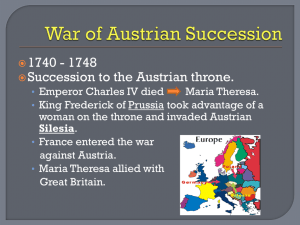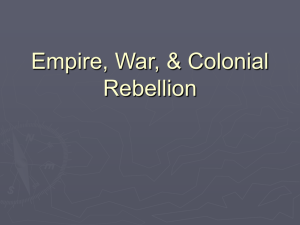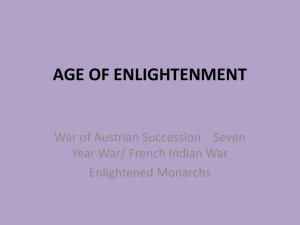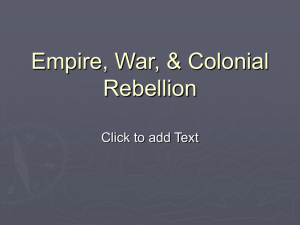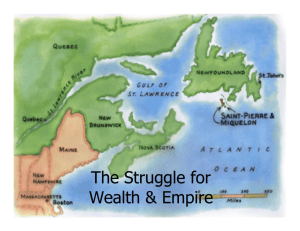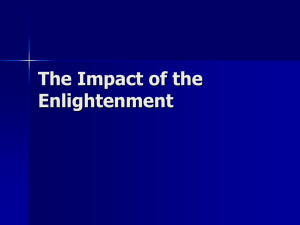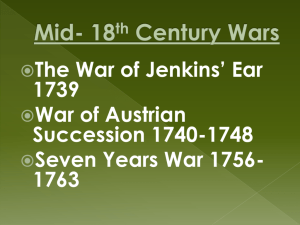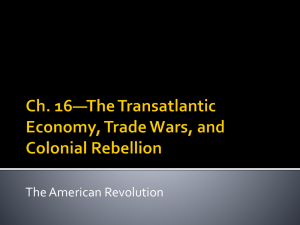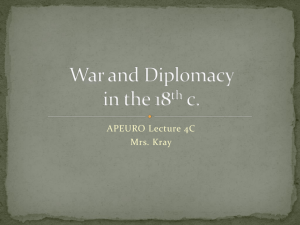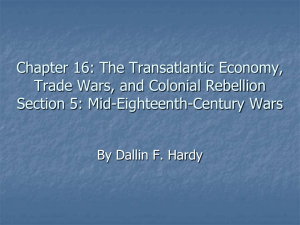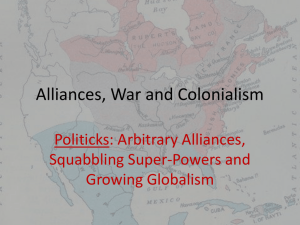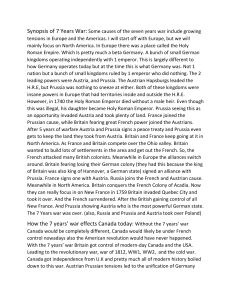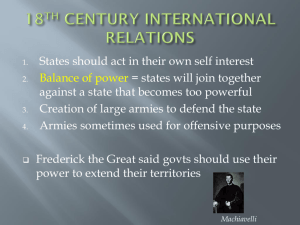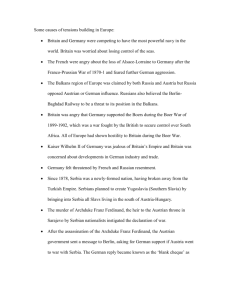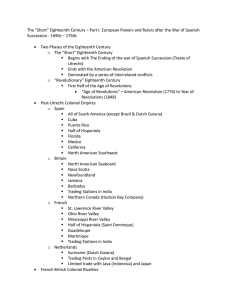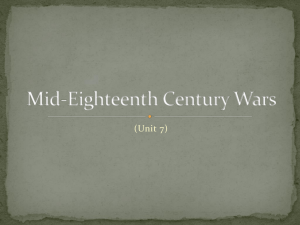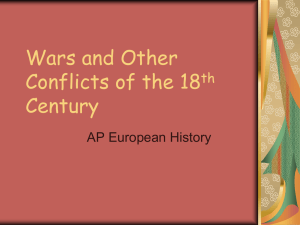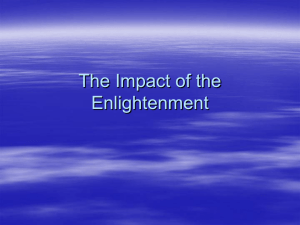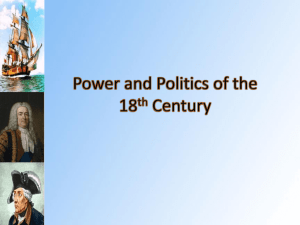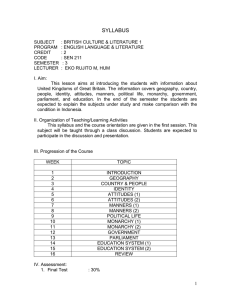18th Century Warfare
advertisement
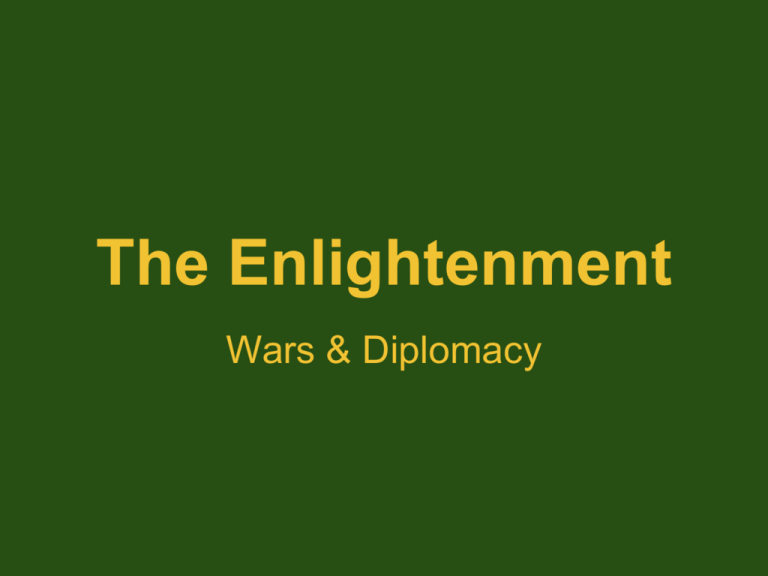
The Enlightenment Wars & Diplomacy The Philosophes on War War was seen as a waste of time, resources, and most importantly, human life. It is forbidden to kill; therefore all murderers are punished unless they kill in large numbers and to the sound of trumpets. - Voltaire Even philosophers will praise war as ennobling mankind, forgetting the Greek who said: 'War is bad in that it begets more evil than it kills.' -Immanuel Kant An empire founded by war has to maintain itself by war. - Montesquieu Idealism Democratic Peace Theory Immanuel Kant The notion that democratic governments are less likely to go to war with one another. Solution: Slowly abolish monarchy and establish republics responsible to the people. Short term problem: Abolition of monarchy is hard, and bloody. Long term problem: democracies LOVE going to war with other forms of government. Political Realism Domestic Policy Monarchies continued to focus on increasing dynastic holdings. BUT some were beginning to shift their focus toward the long-term interests of the State. Foreign Policy Nations built large armies for protection, but often used them for the acquisition of new territory. BALANCE OF POWER War of Austrian Succession Pragmatic Sanction Austrian Emperor lacks a male heir European leaders agree to legitimize Maria Theresa The War Prussia invaded Silesia because “who cares about women?” Then France gets involved because “they hate the Habsburgs” Then Austria forms alliance with Britain because “Britain hates France” War in Europe, India, and Canada Treaty of Aix-la-Chapelle Everything is returned to normal except Silesia Seven Years’ War: Europe Count Wenzel von Kaunitz Austrian Foreign Minister Overturned the Bourbon/Habsburg rivalry New Alliances France, Austria and Russia Prussia and Great Britain War Prussian military prowess held off all three armies Ultimately, Prussia was beaten back Czarina Elizabeth died, however, and Czar Peter III withdrew because he idealized Kaiser Frederick Peace of Hubertusburg Seven Years’ War: India Anglo-French Disputes War waged by proxy British and French supported rival princes French superior; British persistent British win @ the end. Seven Years’ War: America The French & Indian War Areas of contention: St. Lawrence River valley and Ohio River valley French excursions into ORV threatened British expansion; they were also allied with the Natives. William Pitt the Elder Recognized an opportunity Focused almost ALL British effort on N.A. British defeated navy; land victories soon followed. Treaty of Paris (1763) French ceded all lands east of the Mississippi to Britain, including Canada Nature of War Ferocity War became increasingly secular War is more violent when the soldiers have something “higher” than their King to fight for. Scope Civilian populations were less targeted (taxes) Higher cost = lower scope. Tactics Massive battles were rare. Generals used tactics to trick the enemy Formal regulations were adopted. Major Battles That said, there were still 41 named conflicts in Europe between 1700 and 1800. 5 of which had death tolls over 250,000.
